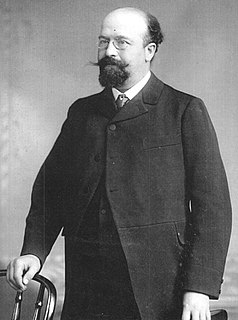A Quote by David Bohm
There is no reason why an extraphysical general principle is necessarily to be avoided, since such principles could conceivably serve as useful working hypotheses. For the history of scientific research is full of examples in which it was very fruitful indeed to assume that certain objects or elements might be real, long before any procedures were known which would permit them to be observed directly.
Quote Topics
Any
Assume
Avoided
Be Real
Before
Certain
Could
Directly
Elements
Examples
Fruitful
Full
General
History
Hypotheses
Indeed
Known
Long
Might
Necessarily
No Reason
Objects
Observed
Permit
Principle
Principles
Procedures
Real
Reason
Reason Why
Research
Scientific
Scientific Research
Serve
Since
The History Of
Them
Useful
Very
Were
Which
Why
Working
Would
Related Quotes
The hypotheses which we accept ought to explain phenomena which we have observed. But they ought to do more than this; our hypotheses ought to foretell phenomena which have not yet been observed; ... because if the rule prevails, it includes all cases; and will determine them all, if we can only calculate its real consequences. Hence it will predict the results of new combinations, as well as explain the appearances which have occurred in old ones. And that it does this with certainty and correctness, is one mode in which the hypothesis is to be verified as right and useful.
It must be therefore, since the enemies of the Jews belonged to the most diverse races, since they lived in countries very distant from each other, since they were ruled by very different laws, governed by opposite principles, since they had neither the same morals, nor the same customs, since they were animated by unlike dispositions which did not permit them to judge of anything in the same way, it must be therefore that the general cause of anti-Semitism has always resided in Israel itself and not in those who have fought against Israel.
Our submission to general principles is necessary because we cannot be guided in our practical action by full knowledge and evaluation of the consequences. So long as men are not omniscient, the only way in which freedom can be given to the individual is by such general rules to delimit the sphere in which the decision is his. There can be no freedom if the government is not limited to particular kinds of action but can use its powers in any ways which serve particular ends.
The roots of the Palestinian conflict must be sought in history. The Holocaust and Palestine are directly connected with one another. And if the Holocaust actually occurred, then you should permit impartial groups from the whole world to research this. Why do you restrict the research to a certain group? Of course, I don't mean you, but rather the European governments.
His [Henry Cavendish's] Theory of the Universe seems to have been, that it consisted solely of a multitude of objects which could be weighed, numbered, and measured; and the vocation to which he considered himself called was, to weigh, number and measure as many of those objects as his allotted three-score years and ten would permit. This conviction biased all his doings, alike his great scientific enterprises, and the petty details of his daily life.
It is known to all persons who are conversant in experimental philosophy, that there are many little attentions and precautions necessary to be observed in the conducting of experiments, which cannot well be described in words, but which it is needless to describe, since practice will necessarily suggest them; though, like all other arts in which the hands and fingers are made use of, it is only much practice that can enable a person to go through complex experiments, of this or any kind, with ease and readiness.
For it is the duty of an astronomer to compose the history of the celestial motions or hypotheses about them. Since he cannot in any certain way attain to the true causes, he will adopt whatever suppositions enable the motions to be computed correctly from the principles of geometry for the future as well as for the past.
In the field of astronomy in the mid-'60s, quasars were very sexy objects - gigantic, star-like masses about which little was known. I was a graduate research student at Cambridge working towards my Ph.D. and chose quasars as the subject for my thesis. Part of my project involved surveying the sky for them using a radio telescope.
Of the first philosophers, then, most thought the principles which were of the nature of matter were the only principles of all things. That of which all things that are consist, the first from which they come to be, the last into which they are resolved....this they say is the element and this is the principle of things.... yet they do not all agree as to the number and the nature of these principle is water.
The fact that these scientific theories have a fine track record of successful prediction and explanation speaks for itself. (Which is not to say that I don't directly discuss the work of those philosophers who would disagree.) But even if we grant this, many will argue that scientific knowledge in humans, and, indeed, reflective knowledge in general, is quite different in kind from the knowledge we see in other animals.
The ends of scientific classification are best answered, when the objects are formed into groups respecting which a greater number of general propositions can be made, and those propositions more important, than could be made respecting any other groups into which the same things could be distributed. ... A classification thus formed is properly scientific or philosophical, and is commonly called a Natural, in contradistinction to a Technical or Artificial, classification or arrangement.



































